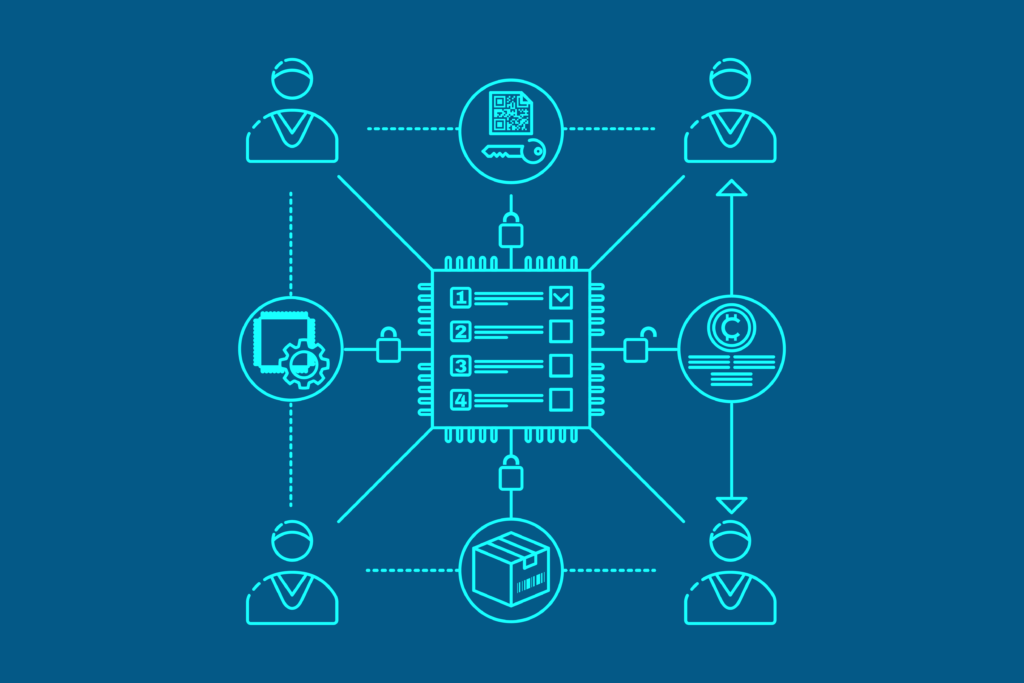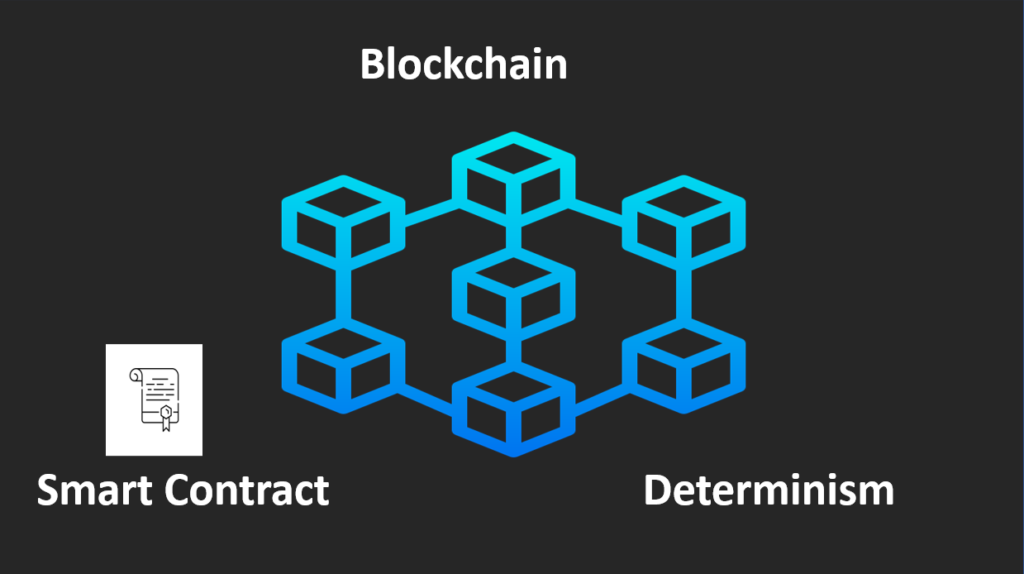Aether Smart Contracts: Enabling Trustless Transactions

Table of Contents
In recent years, the world has witnessed a paradigm shift in the way transactions and agreements are conducted, thanks to the emergence of blockchain technology. Smart contracts, in particular, have emerged as a groundbreaking solution for automating and enforcing agreements in a trustless manner. Aether, a decentralized platform, has taken the concept of Aether Smart Contracts to new heights, enabling seamless and secure transactions without the need for intermediaries.
Introduction to Aether Smart Contracts
In recent years, blockchain technology has revolutionized the way we conduct transactions and manage data in various industries. One of the fundamental innovations that emerged from the blockchain ecosystem is smart contracts. Smart contracts are self-executing contracts with the terms of the agreement written directly into code. These contracts operate on decentralized networks, such as Ethereum, and automatically execute when specific conditions are met. While Ethereum introduced the concept of smart contracts, a new and promising platform called Aether is taking this technology to the next level.
What is Aether?
Aether is a blockchain platform built to enhance the capabilities of smart contracts and enable the creation of powerful decentralized applications (dApps). It was developed to address some of the limitations faced by earlier blockchain platforms, such as scalability and transaction speed. Aether aims to provide a robust and efficient infrastructure for deploying smart contracts, fostering innovation, and promoting mainstream adoption.
Advantages of Aether Smart Contracts
1. Scalability:
Aether employs innovative technologies that enable horizontal scaling, ensuring that the platform can handle a large number of transactions without compromising its performance. This scalability makes Aether an attractive option for developers seeking to build high-throughput dApps capable of serving a vast user base.
2. Low Transaction Fees:
The platform’s architecture allows for cost-effective transaction processing, making it more affordable for users to interact with smart contracts and dApps. This cost efficiency is crucial for achieving mass adoption and encouraging greater usage of decentralized applications.
3. Interoperability:
Aether is designed with interoperability in mind, allowing smart contracts to communicate and interact seamlessly with other blockchains and external systems. This feature opens up a world of possibilities for cross-chain collaborations and facilitates the integration of existing systems with the decentralized world.
4. Enhanced Security:
Aether employs state-of-the-art security measures to safeguard smart contracts and user funds from potential threats. The platform undergoes rigorous testing and auditing to ensure that the smart contracts deployed on it are resilient to attacks and free from vulnerabilities.
5. Developer-Friendly Environment:
Aether provides an intuitive and developer-friendly environment for creating and deploying smart contracts. Its developer tools and documentation make it easier for developers to build complex applications and harness the full potential of the platform.

Use Cases of Aether Smart Contracts
The versatility of Aether smart contracts opens up numerous use cases across various industries. Some of the prominent applications include:
1. Decentralized Finance (DeFi):
Aether smart contracts can be leveraged to build decentralized financial applications, such as lending platforms, decentralized exchanges (DEXs), yield farming protocols, and stablecoins. These DeFi applications enable users to access financial services without the need for intermediaries.
2. Supply Chain Management:
Aether smart contracts can revolutionize supply chain management by providing transparent and traceable transactions. By automating supply chain processes, businesses can achieve greater efficiency, reduce fraud, and ensure the authenticity of products.
3. Gaming:
Aether can be utilized to create decentralized gaming platforms that offer provably fair gameplay, true ownership of in-game assets, and innovative gaming experiences not feasible in traditional gaming ecosystems.
4. Tokenization of Assets:
Real-world assets, such as real estate and artwork, can be tokenized using Aether smart contracts. This tokenization enables fractional ownership and enhances liquidity by allowing assets to be traded on blockchain-based markets.
5. Governance and Voting:
Aether smart contracts can facilitate decentralized governance systems, enabling communities to make collective decisions and vote on important proposals transparently and securely.
Also, read: Understanding Bitcoin: The Rise of Digital Currency
The Role of Aether in Decentralized Transactions
Aether is a cutting-edge blockchain platform that specializes in facilitating trustless transactions through smart contracts. Aether aims to provide a robust and developer-friendly ecosystem to empower businesses and individuals with the benefits of blockchain technology without the complexities.
One of the primary roles of Aether is to serve as a decentralized platform for executing smart contracts. Through its distributed network of nodes, Aether ensures that the contracts’ code is securely stored, transparently auditable, and tamper-resistant. This immutability helps maintain the integrity of the contracts and ensures that all parties involved can trust the outcome of the transactions.
Aether employs a consensus mechanism, such as Proof-of-Stake (PoS) or Proof-of-Authority (PoA), to validate and confirm the execution of smart contracts. This process enhances the network’s efficiency, scalability, and overall security, making it an ideal environment for handling various applications and large-scale transactions.
Furthermore, Aether offers a user-friendly development environment and toolset for creating smart contracts. Developers can use programming languages like Solidity to write contract logic and then deploy these contracts on the Aether blockchain. The platform provides the necessary infrastructure for seamless contract execution, managing gas fees, and handling the interactions between different contracts.
Another essential aspect of Aether is its native cryptocurrency, which plays a vital role in the platform’s ecosystem. It serves as a means of payment for executing transactions and also incentivizes network participants to maintain the network’s security and integrity through staking or validating transactions.
How Aether Smart Contracts Work
Blockchain technology has revolutionized the way we conduct transactions by introducing the concept of smart contracts. Aether smart contracts are a cutting-edge advancement that takes this innovation to the next level, enabling trustless transactions on the blockchain. By combining the transparency and security of blockchain with self-executing contracts, Aether smart contracts open up a world of possibilities for decentralized applications (DApps) and a wide range of industries.
Programming and Deploying Aether Smart Contracts
Aether smart contracts are built on the Aether blockchain, a decentralized network that operates on the principles of transparency, immutability, and consensus. These contracts are essentially sets of code that execute automatically when specific conditions are met. They are written using programming languages that support the Aether Virtual Machine (AVM), which is a runtime environment for smart contracts.
Developers can choose from various programming languages, such as Solidity, C++, Rust, or JavaScript, to write Aether smart contracts, depending on their preferences and the specific requirements of the DApp. Once the contract code is written, it needs to be compiled into bytecode, which is the low-level representation of the contract that can be executed on the AVM.
Deploying an Aether smart contract involves sending a transaction to the network, specifying the bytecode of the contract and any required initial parameters. The contract is then recorded on the Aether blockchain and becomes accessible to anyone who wishes to interact with it. The contract’s code and data are immutable, ensuring that the contract’s behavior remains consistent and secure throughout its lifecycle.

Execution and Verification of Transactions
When a user initiates a transaction with an Aether smart contract, the transaction is broadcasted to the Aether network and added to a block by miners. The miners’ role is to validate the transaction’s authenticity and ensure its compliance with the contract’s rules. This process is essential for the integrity of the Aether blockchain and to prevent malicious actors from compromising the network.
After the transaction is included in a block, the Aether Virtual Machine takes over the execution of the smart contract’s code. The AVM ensures that the contract behaves exactly as intended and autonomously enforces the terms of the agreement between the involved parties.
Once the contract’s execution is completed, the transaction outcome is verified and recorded on the blockchain. This verification process is crucial for maintaining the trustlessness of the Aether smart contract ecosystem. Users can independently audit the contract’s execution, verifying that the outcomes are accurate and that the contract is functioning as expected.
Also, read: Exploring Ether: Unraveling the Mysteries of the Ethereum Blockchain
Advantages of Aether Smart Contracts
Smart contracts on the Aether blockchain have revolutionized the way we conduct transactions and interact with digital assets. These self-executing contracts are powered by blockchain technology, enabling trustless transactions with increased security and transparency. In this article, we will explore the key advantages of Aether smart contracts, focusing on their trustless nature and the enhanced levels of security and transparency they provide.
Trustless Nature of Transactions
Traditional transactions often involve intermediaries such as banks, payment processors, or legal entities to establish trust between parties. Aether smart contracts eliminate the need for such intermediaries, making transactions trustless. Here’s how this remarkable feature works:
Decentralization:
Aether smart contracts operate on a decentralized blockchain network. When parties enter into a contract, the agreement’s terms and conditions are directly coded into the blockchain. Once these conditions are met, the contract executes automatically, leaving no room for human error or manipulation. As a result, there is no need to rely on third parties, and participants can transact directly without having to trust a centralized authority.
Immutable and Tamper-Proof:
Once a smart contract is deployed on the Aether blockchain, it becomes immutable and tamper-proof. The contract’s code cannot be altered, ensuring that the terms agreed upon cannot be modified without the consent of all involved parties. This immutability instills confidence in the system, as participants can rely on the fact that the contract’s integrity remains intact throughout its lifecycle.
Verification through Consensus:
Aether’s consensus mechanism, typically based on Proof-of-Stake (PoS) or Proof-of-Authority (PoA), ensures that transactions are verified by network participants who have a stake in maintaining the blockchain’s integrity. This distributed consensus prevents fraudulent activities, as the network will not validate any transactions that do not comply with the rules of the smart contract. Hence, participants can trust that only valid and legitimate transactions will be executed.
No Single Point of Failure:
Traditional systems often suffer from a single point of failure, which can lead to severe disruptions and security breaches. Aether’s decentralized architecture eliminates this risk, as the network operates on numerous nodes spread globally. Consequently, even if some nodes fail or malicious actors attempt attacks, the network remains operational, making the entire ecosystem highly resilient and secure.
Increased Security and Transparency
One of the most compelling advantages of Aether smart contracts is the heightened level of security and transparency they provide, ensuring that transactions are executed in a safe and visible manner.
Enhanced Security:
Aether smart contracts leverage advanced cryptographic techniques to secure transactions and digital assets. The decentralized nature of the blockchain network makes it extremely difficult for malicious actors to compromise the system. Additionally, the immutability of smart contracts prevents unauthorized changes, safeguarding the interests of all parties involved. The utilization of private and public keys further enhances security, ensuring that only authorized parties can access and interact with the smart contract.
Transparent Execution:
Every action and transaction within a smart contract is recorded on the blockchain and can be viewed by anyone. This transparency creates a reliable audit trail, allowing participants to trace every step of the contract’s execution. All transaction details, including amounts, dates, and involved parties, are publicly accessible, promoting accountability and reducing the possibility of fraudulent behavior.
Trust through Verification:
Since all smart contract operations are transparent and verifiable on the blockchain, participants can place their trust in the system without relying on the reputation or good faith of other parties. The data stored on the blockchain is independently verifiable by anyone, eliminating the need for blind trust and enhancing the overall trustworthiness of the transaction process.

Use Cases of Aether Smart Contracts
Smart contracts have revolutionized the way transactions are conducted in the digital world. By eliminating intermediaries and automating processes, they bring unprecedented efficiency, security, and transparency. Aether, a cutting-edge blockchain platform, takes smart contracts to the next level by enabling trustless transactions across various industries. Let’s explore some of the most prominent use cases of Aether smart contracts.
Supply Chain Management
The complexities of global supply chains often lead to inefficiencies, counterfeiting, and difficulties in tracing products back to their origins. Aether smart contracts offer a transformative solution to these challenges, creating an immutable and transparent supply chain ecosystem.
1. Product Provenance and Traceability: With Aether smart contracts, every stage of a product’s journey can be recorded on the blockchain. From raw material sourcing to manufacturing, distribution, and retail, each transaction and movement is permanently recorded, allowing stakeholders and consumers to verify the authenticity and origin of products.
2. Automated Payments and Escrow: Traditional supply chains involve multiple parties and payment gateways, leading to delays and increased costs. Aether smart contracts enable automated payments, ensuring that suppliers are promptly compensated as soon as predefined conditions are met. Additionally, escrow services can be established, holding funds until agreed-upon terms are fulfilled, enhancing trust between parties.
3. Quality Control and Compliance: Smart contracts can include predefined quality standards and compliance regulations. If a product fails to meet these standards during any stage of the supply chain, the smart contract can trigger notifications or even halt the process until the issue is resolved, ensuring only high-quality products reach consumers.
Decentralized Finance (DeFi) Applications
Decentralized Finance (DeFi) has emerged as one of the most transformative applications of blockchain technology, offering inclusive financial services without the need for traditional intermediaries. Aether smart contracts further empower DeFi applications with enhanced security and scalability.
1. Automated Lending and Borrowing: Aether smart contracts enable seamless peer-to-peer lending and borrowing of digital assets. By setting predefined lending conditions and interest rates, borrowers can access funds without the need for a central authority. Smart contracts ensure that lenders receive their funds back along with the agreed-upon interest, eliminating the risk of default.
2. Decentralized Exchanges (DEX): Aether facilitates the creation of decentralized exchanges, where users can trade digital assets directly without relying on a central exchange. By utilizing smart contracts for order matching and settlement, users retain full control of their assets while enjoying faster and more cost-effective transactions.
3. Yield Farming and Staking: Yield farming and staking have become popular ways to earn rewards in the DeFi space. Aether smart contracts automate the distribution of rewards based on predefined conditions, making the process more secure and efficient.
4. Insurance Products: DeFi insurance platforms can leverage Aether smart contracts to create self-executing policies. When predefined events occur, such as a smart contract breach or market manipulation, the policy automatically pays out to the insured party, streamlining the claims process.
Challenges and Limitations of Aether Smart Contracts
Scalability Concerns
Aether smart contracts have undoubtedly revolutionized the way we conduct trustless transactions, offering increased security and transparency. However, like any emerging technology, they also come with certain challenges and limitations. One of the prominent concerns is scalability, which refers to the system’s ability to handle a growing number of transactions efficiently. As the popularity of Aether smart contracts rises, it becomes crucial to address scalability issues to maintain their viability in real-world applications.
- Increased Network Congestion: As the number of users and transactions on the Aether network grows, so does the network congestion. This congestion leads to slower transaction processing times and higher transaction fees. The decentralized nature of Aether, while providing trustlessness, can contribute to slower transaction speeds compared to centralized systems.
- Resource Demands: Aether smart contracts run on a distributed network of nodes, and each node must execute every contract. This process requires significant computational power and storage resources, posing scalability challenges as the network expands. As a result, the cost of participating in the network as a node could increase, potentially limiting decentralization.
- Bottlenecks: The sequential execution of smart contracts on the Aether network can create bottlenecks, restricting the overall throughput of the system. This can lead to delays in transaction confirmations and hinder the seamless functioning of various decentralized applications (DApps).
Addressing scalability concerns requires ongoing research and development. Potential solutions include sharding, where the network is divided into smaller partitions to process transactions in parallel, and layer-two solutions like state channels or sidechains, which can alleviate the burden on the main Aether blockchain for certain types of transactions.
Smart Contract Vulnerabilities and Auditing
While Aether smart contracts offer increased security compared to traditional systems, they are not immune to vulnerabilities and potential exploits. The deterministic nature of smart contracts means that once deployed on the blockchain, they cannot be altered or reversed. Therefore, it is essential to thoroughly audit smart contracts to identify and rectify potential security flaws before deployment.
- Code Vulnerabilities: Smart contracts are written in code, and any bugs or vulnerabilities in the code can have severe consequences. Even small errors can lead to significant financial losses or create opportunities for malicious actors to exploit the contract.
- Human Errors: Smart contracts are developed by humans who might inadvertently introduce errors or unintended functionalities during the coding process. Additionally, the complexity of some contracts can make it challenging to foresee all potential interactions and vulnerabilities.
- External Dependencies: Smart contracts might rely on external data sources, known as oracles, to execute certain functions. If these oracles are compromised or manipulated, it could lead to incorrect contract execution.
- Lack of Upgradability: While immutability is a desirable feature for trustless transactions, it also means that once deployed, smart contracts cannot be upgraded or patched easily. This poses a challenge if vulnerabilities are discovered after deployment.
To mitigate smart contract vulnerabilities, comprehensive auditing, and testing are vital. Smart contract audits involve a thorough review of the codebase to identify potential issues and security flaws. Auditors use both manual and automated methods to ensure that the contract functions as intended and adheres to best practices.
Aether smart contract developers should also follow industry standards and participate in the broader community to share knowledge and best practices for secure contract development. Additionally, the adoption of formal verification tools and bug bounty programs can contribute to enhanced smart contract security and create a more reliable decentralized ecosystem.
FAQS
Q1: What are Aether Smart Contracts?
Aether Smart Contracts are self-executing digital contracts built on blockchain technology, enabling trustless and automated transactions without the need for intermediaries.
Q2: How do Aether Smart Contracts work?
Aether Smart Contracts operate on a decentralized network, utilizing the blockchain’s distributed ledger to validate and execute agreements based on predefined conditions and rules.
Q3: Why are Aether Smart Contracts considered trustless?
They are trustless because once deployed on the blockchain, the contract’s execution becomes automatic and tamper-proof, eliminating the need to rely on a centralized authority or counterparties to fulfill their obligations.
Q4: What benefits do Aether Smart Contracts offer over traditional contracts?
Aether Smart Contracts provide several advantages, including increased security, transparency, efficiency, cost savings, and the ability to eliminate the risk of fraud and manipulation.
Q5: Can Aether Smart Contracts be used for financial transactions?
Yes, Aether Smart Contracts are particularly well-suited for financial transactions, including payments, lending, borrowing, and trading of assets, as they ensure that transactions are carried out only when all predetermined conditions are met.
Q6: How are disputes handled in Aether Smart Contracts?
Disputes in Aether Smart Contracts are minimized through the use of code logic and predefined conditions. However, if a dispute arises, it can be resolved through a predefined arbitration mechanism encoded within the contract.
Q7: Are Aether Smart Contracts only applicable in the financial sector?
No, Aether Smart Contracts have a wide range of applications beyond finance. They can be utilized in various industries, such as supply chain management, real estate, healthcare, gaming, and more, to automate processes and enhance trust among parties.
Q8: What programming languages are used to create Aether Smart Contracts?
Aether Smart Contracts are typically written using programming languages that are compatible with the underlying blockchain platform, such as Solidity for Ethereum or Ink! for Polkadot.
Q9: Can Aether Smart Contracts be updated or modified after deployment?
It depends on the design of the specific smart contract. In some cases, updates might be possible, but most Aether Smart Contracts are designed to be immutable to ensure the integrity of the contract and prevent unauthorized changes.
Q10: Is there a need for a third party to execute Aether Smart Contracts?
No, Aether Smart Contracts are self-executing, meaning they automatically execute when the predefined conditions are met, without the involvement of any third party. This attribute enhances their trustless nature.




